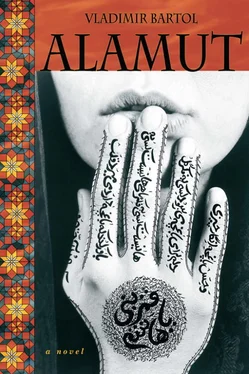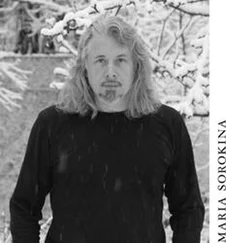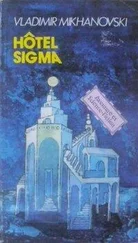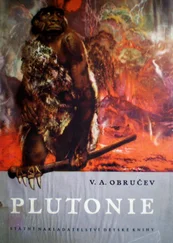Vladimir Bartol - Alamut
Здесь есть возможность читать онлайн «Vladimir Bartol - Alamut» весь текст электронной книги совершенно бесплатно (целиком полную версию без сокращений). В некоторых случаях можно слушать аудио, скачать через торрент в формате fb2 и присутствует краткое содержание. Город: Berkeley, Год выпуска: 2012, ISBN: 2012, Издательство: North Atlantic Books, Жанр: Историческая проза, на английском языке. Описание произведения, (предисловие) а так же отзывы посетителей доступны на портале библиотеки ЛибКат.
- Название:Alamut
- Автор:
- Издательство:North Atlantic Books
- Жанр:
- Год:2012
- Город:Berkeley
- ISBN:9781583946954
- Рейтинг книги:2.8 / 5. Голосов: 5
-
Избранное:Добавить в избранное
- Отзывы:
-
Ваша оценка:
- 60
- 1
- 2
- 3
- 4
- 5
Alamut: краткое содержание, описание и аннотация
Предлагаем к чтению аннотацию, описание, краткое содержание или предисловие (зависит от того, что написал сам автор книги «Alamut»). Если вы не нашли необходимую информацию о книге — напишите в комментариях, мы постараемся отыскать её.
Alamut — читать онлайн бесплатно полную книгу (весь текст) целиком
Ниже представлен текст книги, разбитый по страницам. Система сохранения места последней прочитанной страницы, позволяет с удобством читать онлайн бесплатно книгу «Alamut», без необходимости каждый раз заново искать на чём Вы остановились. Поставьте закладку, и сможете в любой момент перейти на страницу, на которой закончили чтение.
Интервал:
Закладка:
He took the sentence from Abdul Malik’s hands. He read through it carefully. Then he dipped a goose quill in ink and firmly affixed his signature.
“There,” he said. “Abu Ali! You will proclaim the verdict of the high court of the dais to the faithful. Tomorrow morning before the sun comes up the executioner is to perform his duty. Is everything clear?”
“Yes, ibn Sabbah.”
Buzurg Ummid, who had been standing silently off to one side all this time, said, “Perhaps it would be possible to soften the sentence by leaving out its first part?”
“It’s already been signed. Thank you for your work.”
When he was alone again, he said to himself, “My son has been a stumbling block in my edifice. Am I a beast for destroying him? Once begun, the building has to be finished. If your heart is an obstacle, tell it to be silent, because all great things are great in spite of human beings.”
CHAPTER TWENTY
Before the sun rose the next morning, the drums sounded the assembly. Word traveled quickly that the supreme commander’s son was to be beheaded for murdering the grand dai of Khuzestan.
Abu Ali entered the prisoner’s cell along with Manuchehr and Ibrahim. His voice quavered slightly as he read the sentence and announced that the supreme commander had rejected the plea for mercy.
“Let’s go, son of Hasan. Justice must be done.”
For a moment Hosein stared at his visitors like a startled animal. Then he lunged at them, but his legs got caught on his chains, and he fell.
“Dogs! Damned dogs,” he moaned.
They lifted him up. With all his might he struggled against going out to the place of execution. The guards had to drag him out of the dungeon by force.
The army was assembled on the middle and lower terraces. A heavy wooden block had been set up at the center of the middle terrace. The executioner arrived with his assistants. He was bare to the waist and carried an axe over his shoulder. He walked proudly and acted as though he didn’t see anyone.
A whisper coursed through the ranks.
“They’re bringing him.”
Hosein was cursing and pummeling the guards wildly. He snorted and bared his teeth like a wildcat. The men bringing him were already out of breath. They shoved and kicked him coarsely toward the block.
When the condemned man saw the executioner with his axe, he began to shake uncontrollably. He stopped making any noise, realizing what awaited him.
“Sayyiduna’s son. The supreme commander’s son,” the men whispered in the ranks.
Abu Ali, Buzurg Ummid and Manuchehr mounted their horses. The horn sounded the call to attention. Abu Ali rode forward a few paces from the others. He unrolled a document and read the death sentence aloud in a clear voice. Then he called on the executioner to perform his duty.
For a moment everyone was as silent as a tomb. Only the sound of the mountain stream could be heard.
Suddenly a cry erupted from Hosein’s chest.
“People! Didn’t you hear? A father is handing his own son over to the executioner!”
A murmur coursed through the ranks. Standing at the head of the fedayeen novices, Abdur Ahman looked at Naim, who was right behind him. His face was as pale as wax.
The assistants seized the prisoner and freed his right hand. Hosein resisted with desperate force. He instinctively strained away from the block, but the two giants managed to push him toward it all the same, forcing him to his knees and holding his right hand over the block. The executioner grabbed onto his wrist with one hand and then swung the axe with the other. The blade shot through the air and sliced through the bone with a grinding sound. Hosein bellowed so loudly that it pierced the men to the marrow. He broke free of the assistants, spraying their faces with the blood that was coursing from his open veins. Then he passed out and collapsed to the ground. The two men lifted him up and set his head on the block. The executioner severed it from his body with a single blow. An assistant handed him a cloak. He threw it over the body, which was swimming in blood.
Then he turned to Abu Ali.
“The executioner has performed his duty,” he said dryly.
“Justice has been served,” the grand dai responded.
Once again he rode a few paces forward to address the assembled garrison.
“Ismailis! You have just witnessed the strict justice that governs Alamut. Sayyiduna, our supreme commander, knows no exceptions. Whoever commits a crime will be punished strictly according to the law. Neither rank nor lineage will shield any man from the punishment he deserves. So I call on you once more to respect and obey the law. Allah is Allah and Mohammed is his Prophet! Come, al-Mahdi!”
He gave an order and the men dispersed to resume their usual daily assignments.
Many of them said, “Truly, there is still justice in the world!”
Others said, “Has there ever been a prince or a chieftain who has sacrificed his own son to the law?”
Word about how the Ismaili supreme commander had punished his own son spread like lightning throughout the land and evoked a respect for Hasan verging on awe.
In the meantime Jafar, transformed into the sultan’s messenger Halef, had a variety of encounters on his way to Baghdad. Immediately outside of Qazvin he came across a large group of soldiers, some riding and others walking toward the military encampment at Nehavend. They were scattered members of Kizil Sarik’s army for the most part, originally from Khorasan and Khuzestan. They respectfully made way for him when they realized he was an officer of the sultan’s bodyguard. But they also immediately became quiet.
He was able to change horses at every station. The first night he slept out under the stars, but after that he slept in the caravanserais along the main road. Halfway to the city of Sava he shared a room in some inn with two officers of Kizil Sarik’s army. They told him what it had been like outside of Gonbadan and how the news of the grand vizier’s murder had affected the troops.
“All the northern territories are Shiite,” one of them said. “They see the Ismailis as their coreligionists, and now that Nizam al-Mulk is gone, they don’t see any reason to fight the commander of the mountain.”
Jafar confided in them that he had just come from Alamut as the sultan’s messenger. They looked at him terrified.
“Don’t turn us in,” they begged him. “Like we said, that’s what all the men think now. When the order comes, we’ll all be ready to fight again.”
He reassured them. They grew curious. He amazed himself. Did his external transformation have this effect on him, or was it the fear of giving himself away that caused him to so completely embody his role? He told them horror stories about Alamut that made their hair stand on end. Even after he had fallen asleep, he kept dreaming about these terrors. But, on waking the next morning and noticing uniforms of the sultan’s army hanging on the wall, he still instinctively reached for the handle of his saber. It took a few moments for him to realize where he was and what role he was playing.
He performed his morning prayers quickly, downed a dish of curdled milk and a piece of oat cake, leapt onto his horse, and rode on.
Along the way he encountered a substantial, well-armed troop of Turkish cavalry. Their commander stopped him and asked for his identification.
Jafar showed it to him. He explained that he was the sultan’s messenger returning from Alamut.
“Fine. My assignment is to reorganize the units that scattered after the sieges of the infidel fortresses, and to do that at any cost. His Majesty has ordered us to attack the Ismailis again.”
Jafar continued his journey. He wondered, Does Sayyiduna know about this new danger threatening Alamut? But he had to carry out his order, and nothing could deter him from that.
Читать дальшеИнтервал:
Закладка:
Похожие книги на «Alamut»
Представляем Вашему вниманию похожие книги на «Alamut» списком для выбора. Мы отобрали схожую по названию и смыслу литературу в надежде предоставить читателям больше вариантов отыскать новые, интересные, ещё непрочитанные произведения.
Обсуждение, отзывы о книге «Alamut» и просто собственные мнения читателей. Оставьте ваши комментарии, напишите, что Вы думаете о произведении, его смысле или главных героях. Укажите что конкретно понравилось, а что нет, и почему Вы так считаете.












